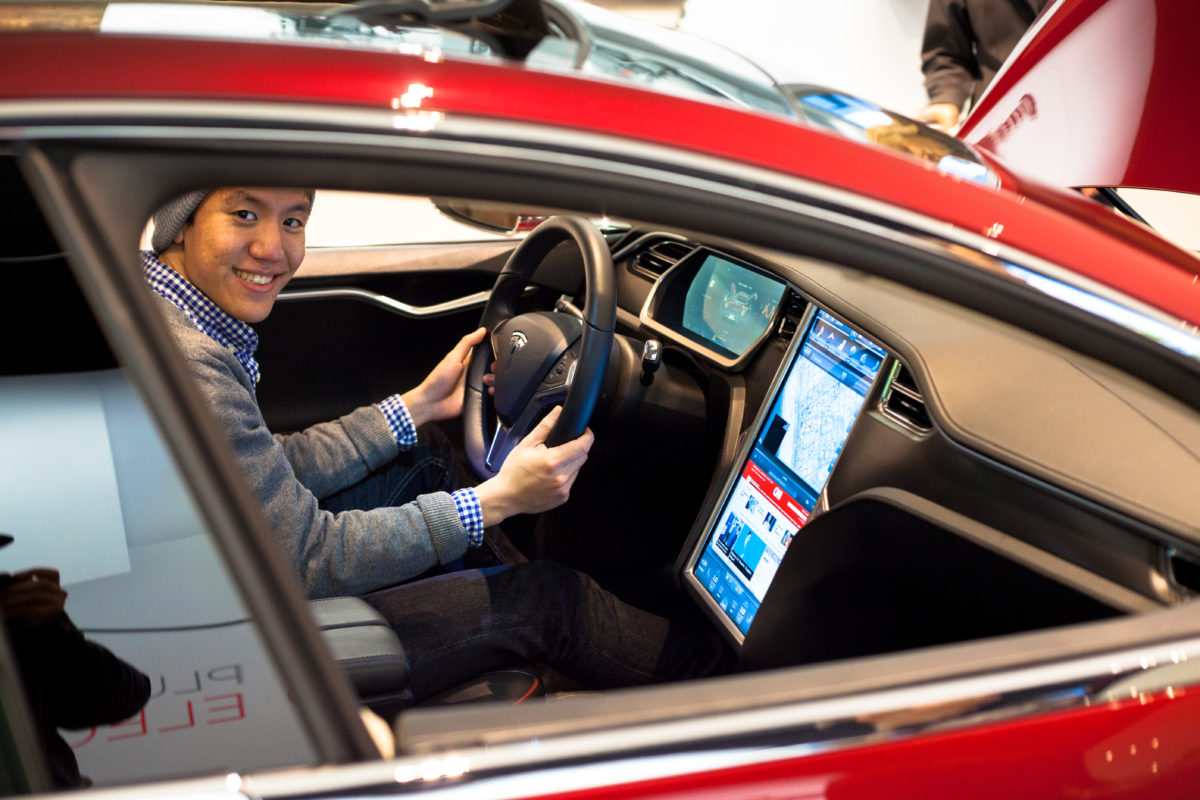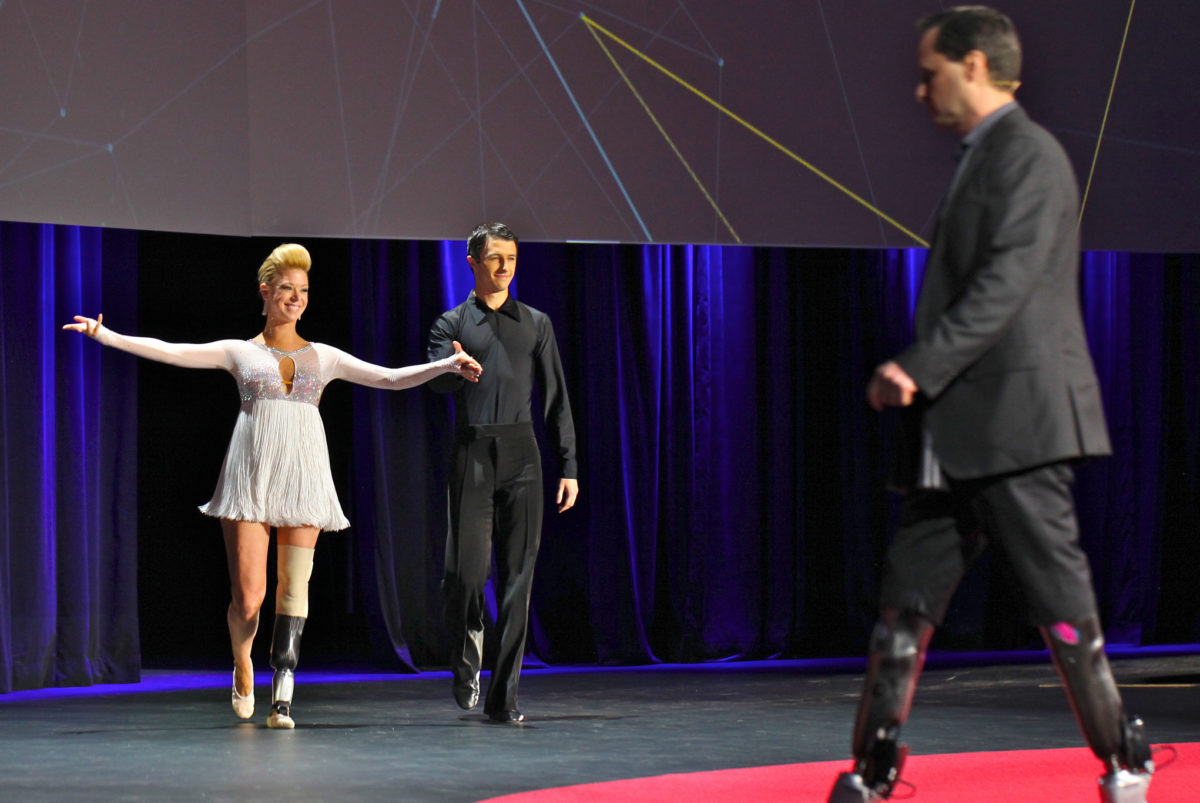When the first smartphone was introduced in 1992 by IBM, it didn’t sell and the prominence of smartphone technology in our lives was hard to imagine. Now it is impossible to imagine our lives without it. Our phone is our personal assistant, our marketing manager, our personal trainer, and now with a free app download and three clicks, our personal chauffeur.
It’s easy to chalk up ridesharing apps as just another add-on to the technological landscape, but apps like Uber and Lyft are innovative game changers sparking lots of political controversy and debate. As these companies begin to compete with traditional taxi service, taxi companies argue that regulations should limit or prohibit this “unfair” competition.
Before ridesharing apps were created, taxi service could be hard to get during peak hours and especially during holidays, as anyone in major cities such as New York, San Francisco, and Chicago can tell you. The supply of taxis has long been restricted by the medallion system, created in the 1930s to limit competition in the taxi industry. In Chicago there are only 6,955 medallions available and consumer demand for taxis far exceeds that number.
With such a high demand for medallions, medallion owners lease out their medallions to drivers, for a fee of as much as $100 for a 12-hr shift. Whether taxi drivers have one customer or twenty they have to pay this leasing fee, which guarantees medallion owners and leasing companies a profit. Regardless of the number of customers drivers have, as long as medallion owners and leasing companies have drivers they will make a profit
Ridesharing apps eliminate the middleman by connecting drivers directly with customers. But companies like Uber and Lyft are being allowed to operate only because they exploit a loophole in the law. Since ridesharing app companies do not provide cars to their drivers, they claim to not provide taxi service. Instead of leasing a medallion and cab, drivers can use their own car and a smartphone app to provide service. As a result, ridesharing apps allow an unrestricted number of drivers to provide customers with service.
Despite the benefits that ridesharing apps provide drivers and their customers, lawmakers are implementing regulations in the name of “fair competition” in a way that will only reinforce the older ineffective system. To protect taxi drivers, lawmakers are placing caps on the number of drivers that can be employed using ridesharing apps and in some cases, banning GPS-based fare that allows companies like Uber to provide low prices.
Taxi companies are right to argue that it is unfair for them to be subject to burdensome regulations when ridesharing app companies are subject to fewer of them. Every inch of a taxicab is regulated including: its model, type of interior, vehicle age, color and size of top lights, type of advertising that can be featured on the cab’s exterior, thickness of safety shields, and location of security cameras. Taxi companies and medallion holders have invested a lot time, energy, and finances to meet state taxi specifications, but these regulations make it very difficult for them to run their businesses profitably. The existing regulations prevent people from providing taxi service, and then dictate the type of service that can be provided to those who can.
However, it is also unfair to punish ridesharing app companies and ban them from providing service to compensate for the unfairness of regulations on the taxi industry. Ridesharing app companies have done nothing wrong by creating an innovative alternative to traditional taxi service. They have created a tool that makes it easier to connect drivers with customers, which is a good thing. Regulating the service that ridesharing app companies provide would burden these companies in the same way that regulations on taxi companies do.
The only just and fair way to resolve this dilemma is to eliminate regulations on the traditional taxi industry and those on new ridesharing app companies. This means ending the medallion system and allowing both companies the freedom to create the type of service they wish to provide to any customer who wants it.
If Uber is allowed to continue operating only because it has petitioned for laws that privilege it specifically, it will continue to operate only by government permission. But all innovators and creators should have the freedom to create by right.
By protecting the special interests of some and eliminating competition by others, regulations prevent new technology from flourishing. For example, as one commentator has noted, if Uber is allowed the privilege of operating only because it does not own its fleet, current regulations will prevent companies from using automated, driverless cars to provide taxi service, which will reduce overhead and bring savings to consumers. It is impossible for the government to anticipate what will be created and it is pointless for it to try.
Imagine if the government were to dictate which art could and could not be created. Citizens would cry that this is a violation of rights and tyranny. How is an artist’s freedom to create any different from the freedom of businesspeople to create? Artists create because they are inspired to bring some vision into reality. Are businessmen any different? Do they also not wish to introduce a new product or service where none existed before? How is the restriction of business innovators’ freedom to create not a violation of their rights?
Artists have to compete just like businessmen. While some artists make millions, others never make any money and spend their life in obscurity. Yet, no one protests that the artists making millions are monopolizing the industry and robbing other artists of their livelihood. Why? They know that if no one buys the obscure artist’s art, this is isn’t the successful artist’s fault. The freedom to create doesn’t include the right to stop others from creating.
Far from creating fair competition, regulations against businesses do stop others from creating: they prevent innovators from creating their best work for anyone to buy.
Not only do regulations stifle the innovations we already enjoy, but also they prevent others from being created at all. In the process, regulations prevent mankind from reaching its full potential. Regulations do not protect us so much as they cripple us from reaching our most ambitious goals. So ask yourself, what kind of world do you want to live in—a world of innovation and creativity or a world that punishes the good for being good?
Creative commons-licensed image from Flickr user Robert S. Donovan.





